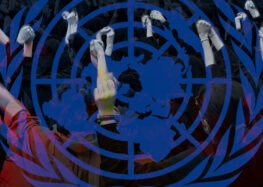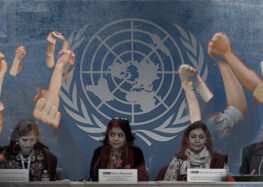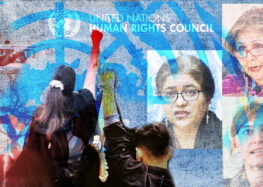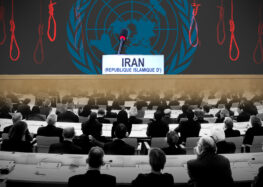New UN Special Rapporteur Javaid Rehman Requests Entry to Iran
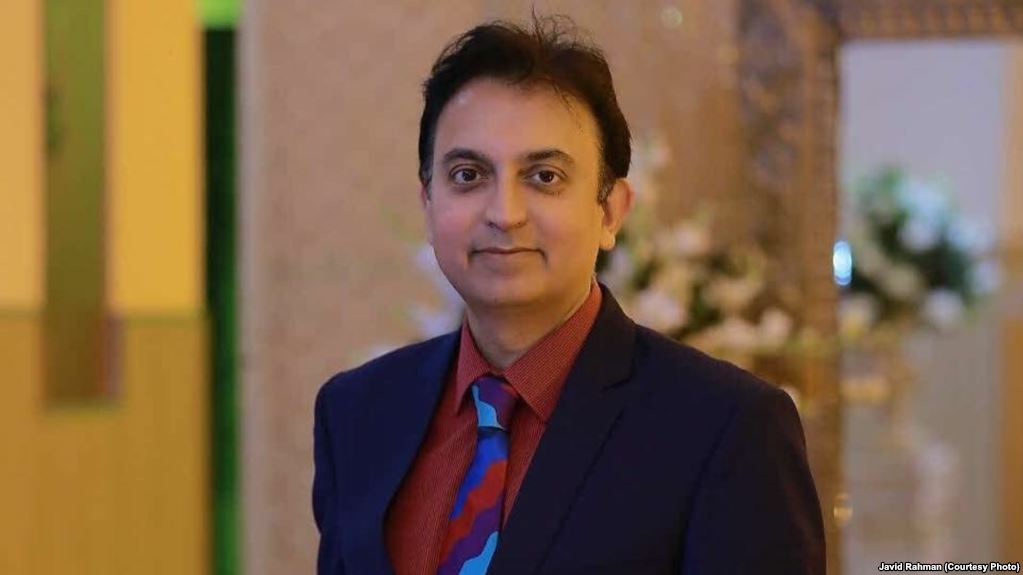
UN SRs on Human Rights Banned From Visiting Since 2005
The new special rapporteur on the situation of human rights in the Islamic Republic of Iran, Javaid Rehman, has requested that Iran break its 13-year ban on UN human rights experts visiting the country and allow him entry.
The request was made in the advance unedited version of Rehman’s first report on the human rights situation in Iran, which was transmitted to the UN General Assembly in accordance with Human Rights Council resolution 37/30 following Rehman’s appointment in July 2018.
This initial report is based on consultations held with interlocutors in Geneva in August 2018 and sets out some consistently documented issues of concern as well as some steps envisaged towards the fulfillment of the mandate of the special rapporteur.
Among the concerns listed in the report are Iran’s execution of prisoners including juvenile offenders without due process; torture and other cruel, inhuman or degrading treatment or punishment used against prisoners, the denial of basic rights of free speech and freedom of assembly; the abrasion of women’s rights; and systematic violations of minority rights.
Following is the report’s full conclusion. The entire document can be downloaded by clicking this link.
- Conclusions and Recommendations
- The Special Rapporteur emphasises his intention to develop a constructive dialogue and cooperation with the Government of the Islamic Republic of Iran to facilitate the implementation of his mandate. In this regard, the Special Rapporteur welcomes the spirit of engagement conveyed during his first meeting with representatives of the Government. He further emphasises that a country visit conducted on the basis of unhindered access would be highly significant and would enable him to strengthen engagement with the authorities on human rights. It would further enable the Special Rapporteur to conduct a detailed assessment of the human rights situation in the country including through interviews with individuals residing in the country and would significantly inform the preparation of a future report.
- The Special Rapporteur has highlighted a number of consistently documented issues of concern in this report on the basis of a review of reports of his predecessors, the Secretary-General, and the international human rights mechanisms, allied with a review of reports received by numerous sources and initial discussions with various interlocutors. These issues include violations of the right to life, particularly the execution of juvenile offenders; the prohibition of torture and other ill-treatment; the right to freedom of assembly, opinion and expression; and the rights of women and girls, as well as of religious and ethnic minorities, and represent areas in which the Special Rapporteur intends to seek further detailed information.
- On the basis of his initial analysis, the Special Rapporteur has identified a number of further areas which he presently intends to address, including but not limited to violations of economic, social and cultural rights, the situation of human rights defenders, the situation of foreign and dual nationals, the alleged 1988 summary executions, as well as groups rights, in particular those based upon disability, sexual orientation, and gender identity.
- The Special Rapporteur reiterates previous calls of his predecessor and the Secretary-General that all those arrested for the peaceful exercise of the rights to freedom of assembly, opinion, and expression are released, including those arrested during the December 2017 and January 2018 protests in this context. The Special Rapporteur further calls upon the Government to undertake an independent and transparent investigation into the reported deaths in custody and other incidents leading to alleged violations of rights that took place during and after the protests.
- The Special Rapporteur calls upon the Government to uphold the fundamental human rights of freedom of opinion and expression, and to repeal all laws and policies which criminalise or restrict online expression, with online content only to be restricted by independent and impartial judicial decisions.
- The Special Rapporteur expresses his grave concerns at the continuing execution of juvenile offenders in Iran and calls upon the Government to immediately prohibit all executions of persons charged of offences committed below the age of 18 years old. He further recommends that the Government abolish the death penalty in all cases, and pending this, introduce a moratorium.
- The Special Rapporteur calls upon the Government to ratify the Convention against Torture and Other Cruel Inhuman or Degrading Treatment or Punishment, and urges the Government to enacts laws prohibiting the punishments of flogging and amputations as they represent cruel, inhuman or degrading punishments and violate Articles 7 and 10 of ICCPR.
- The Special Rapporteur calls upon the Government to ratify the Convention on the Elimination of All forms of Discrimination against Women and prohibit all forms of discrimination against women, both in law and in practice.
- The Special Rapporteur calls upon the Government to fully respect the rights of religious and ethnic minorities of Iran and ensure that regardless of ethnicity, religion or belief, all those who reside in the Islamic Republic of Iran have equal protection before the law.

